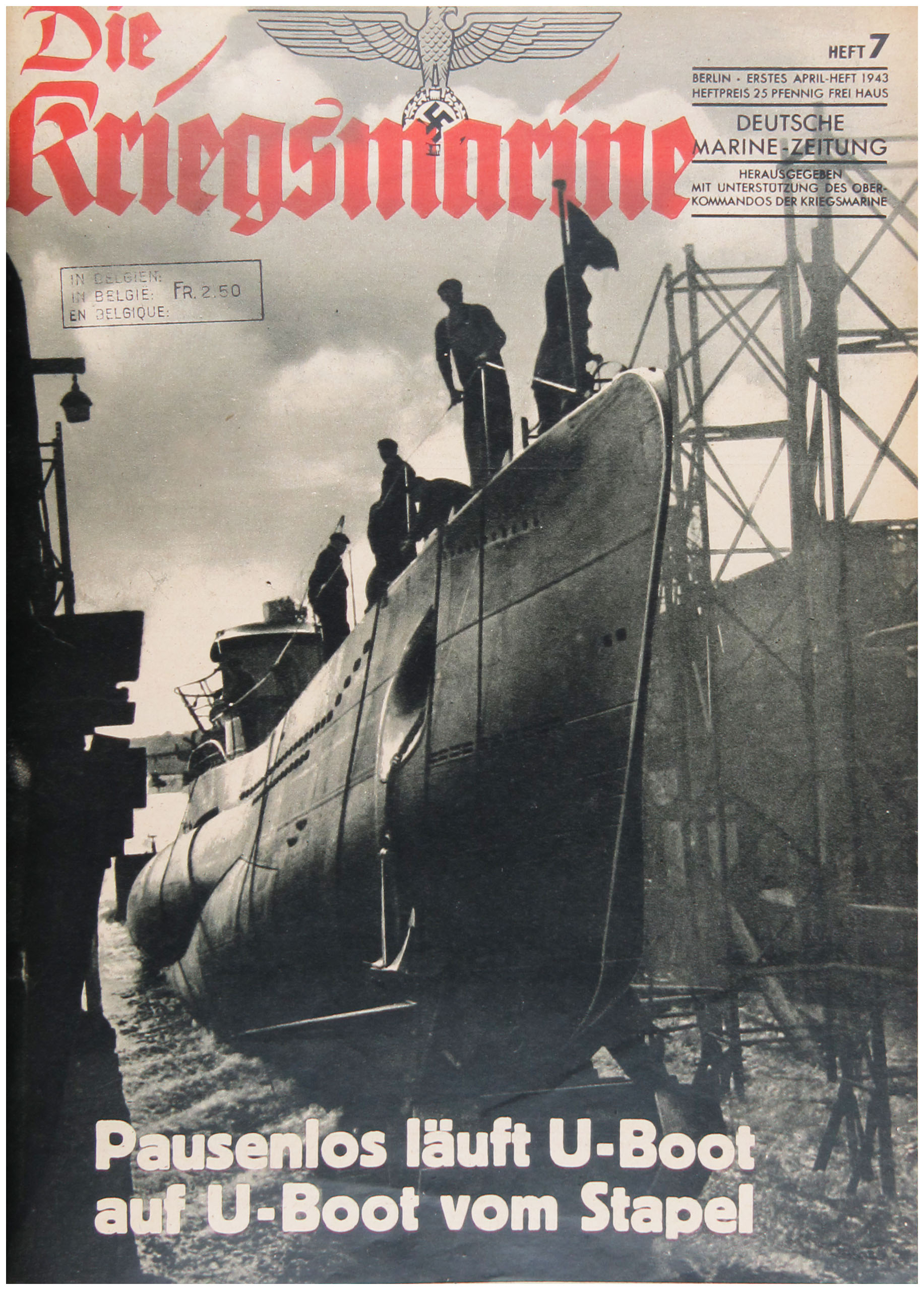Winter, 1942. After various failures, i.e. attempts with “Pflichtjahrmädchen”1 , who were not at all what my mother had in mind, Leni suddenly appeared. My brother was about three years old at the time, and she threw herself with great enthusiasm into the care and education of the little chubby guy, who became her absolute favorite. In this way Leni became a nanny, and my mother decided that it would not do us any harm if we gave her the nickname “Fräulein” instead of just blaring “Minna” or “Hanna” like the others. My mother always thought that her maids were fully part of the family, and so joys and sorrows were shared fairly.

One day, Miss Leni met the handsome sailor “Kurt Krieg” while she was out. He was a chief mate on a submarine and during his few days of vacation he regularly came to our house to pick up Leni. On such happy days she would sing early in the morning: “Because we are sailing against Engellend!” and was not nearly as meticulous with my schoolwork as usual. On these days, however, we had to take a bath early in the afternoon, and dinner was served in bed so that Leni could get ready for her fiancé in time. But we didn’t hold it against her at all, because while she disappeared into her attic to change, Kurt played submarine war with us. For this purpose, my brother was allowed to put on his blue cap with the inscription “Kriegsmarine” and the long ribbons, I got the sailor’s collar, and then the roles were distributed. One was an enemy ship, one was a torpedo.
Of course, everyone preferred to be a German torpedo. The torpedo would jump from one child’s bed to the other towards the ship to be sunk, which of course would always sink promptly. Our chief petty officer gave precise military instructions on how the torpedo had to be released. You can imagine how disappointed we were every time Miss Leni appeared in her Sunday best. He would have been much better off with us sinking ships. We children had no idea what these few hours of togetherness and happiness meant to the poor war brides who feared for the lives of their loved ones all year long.
In the winter of 1942, Leni married Kurt. She told us enthusiastically about a beautiful wedding in Eisenberg, Thuringia, where she lived. She had driven to the church in a sleigh with her smart groom in uniform. Above her bed were the beautiful pictures and the envelopes of all the field post letters that she had received from Kurt, but after the wedding only one more was to be added. Kurt Krieg went down with his submarine a few weeks after his wedding, and our Miss Leni was a war widow at the age of 21. She never sang again: “For we are sailing towards England”, but I secretly read the last verse of the song, which says:
“When the news comes that I have fallen,
when I rest in the sea,
don’t cry, my darling, and think,
for the fatherland, my blood flowed”2
I didn’t find the song nice anymore, especially since Miss Leni was leaving us soon after. She really wanted to become a nurse and care for the wounded in hospitals, and of course my parents couldn’t deny her this wish.
- Pflichtjahrmädchen refers to young women in Nazi Germany who were required to perform a year of compulsory service, known as the Pflichtjahr or “duty year.” This policy was part of the broader Nazi agenda to mobilize the population for the war effort and to instill Nazi ideology in the youth. The Pflichtjahr was introduced in 1938 as a way to address labor shortages in the agricultural sector and to prepare young women for their roles as wives and mothers in accordance with Nazi ideology. The program targeted young women, typically after they completed their schooling, around the age of 18. Participation was mandatory for those who wished to pursue further education or employment.
↩︎ - The phrase “Kommt die Kunde, da ich bin gefallen, da ich ruhe in der Meeresflut, weine nicht, mein Schatz, und denke, für das Vaterland, da floß mein Blute” is from the song “Denn Wir Fahren Gegen Engeland”. This song was written by Hermann Löns and has been set to music by various composers. It is known for its patriotic theme, expressing a sense of sacrifice for the fatherland
↩︎
